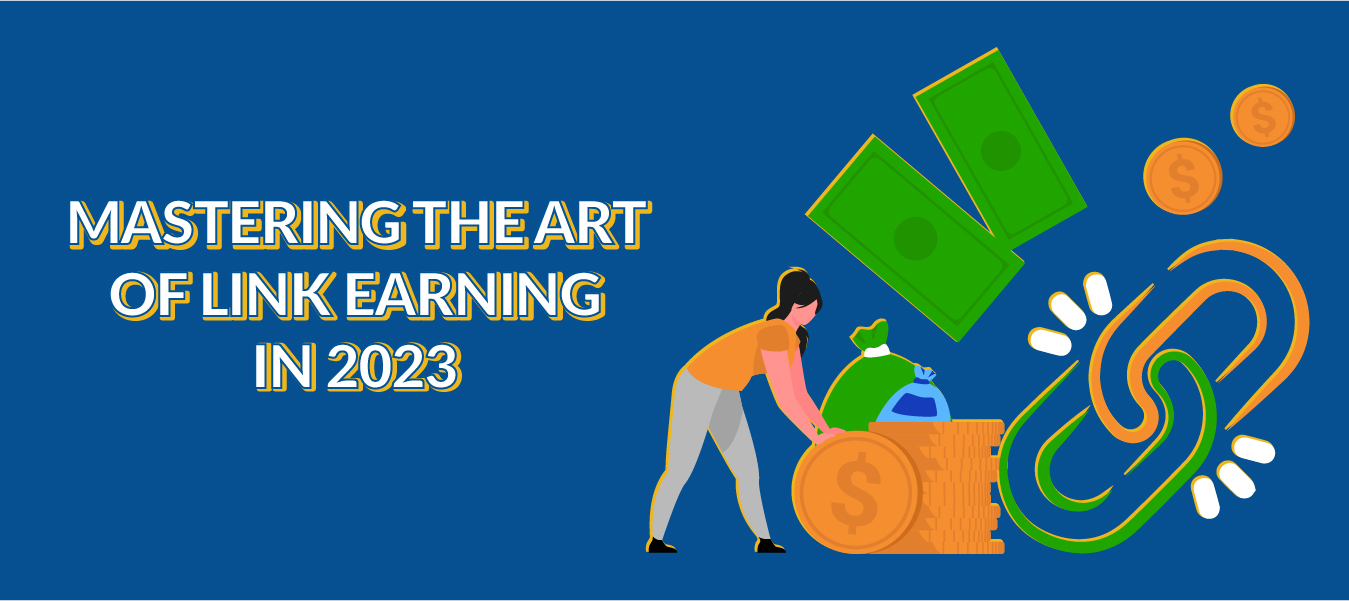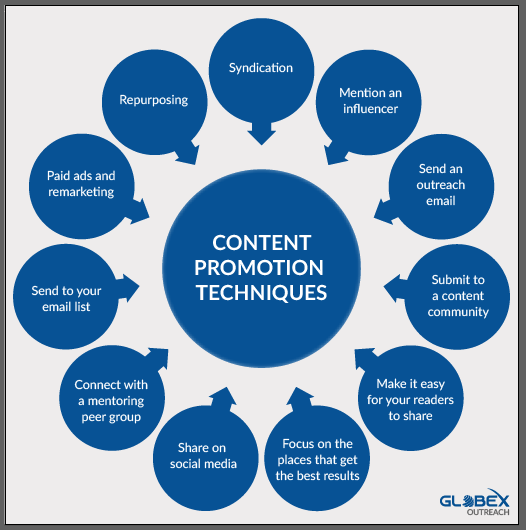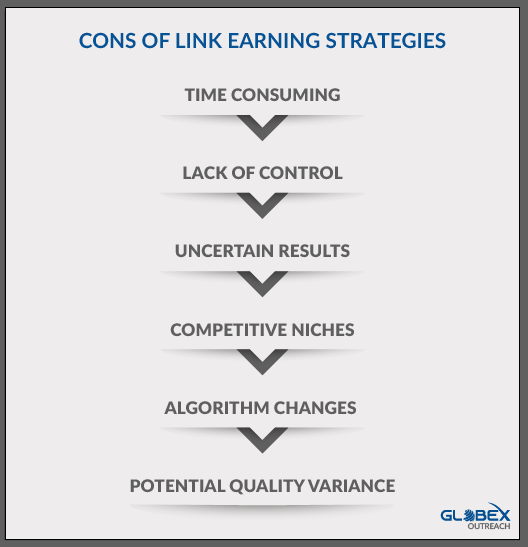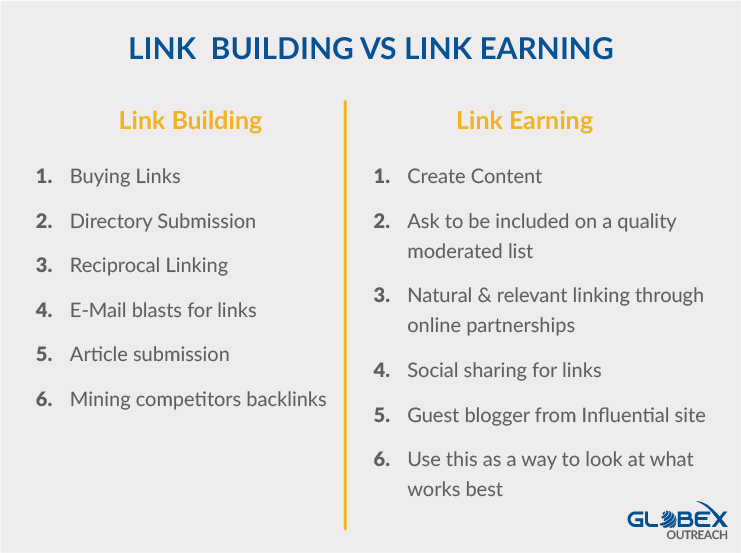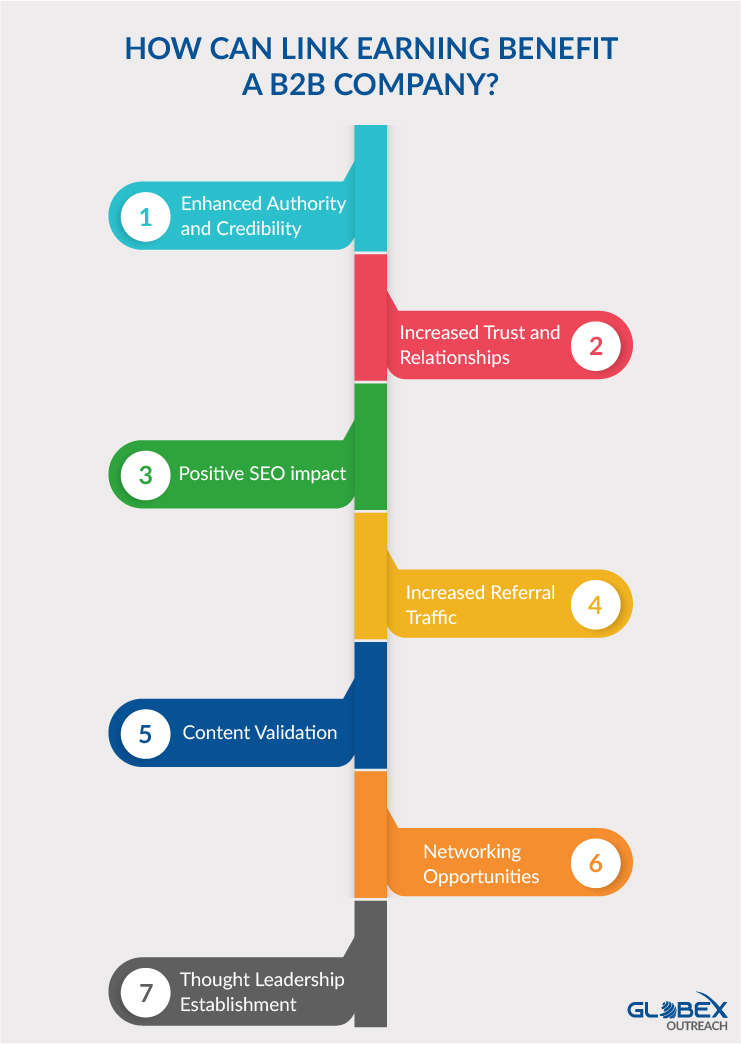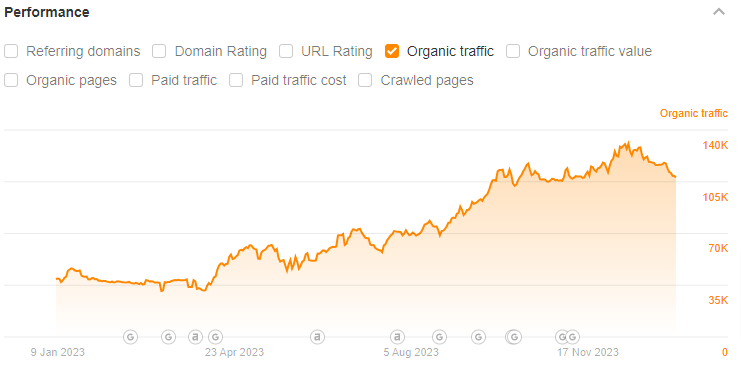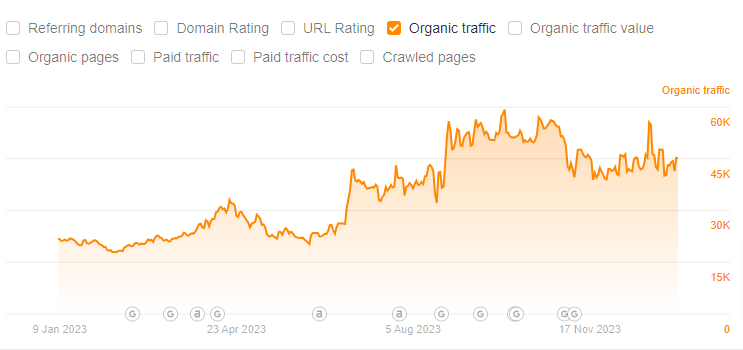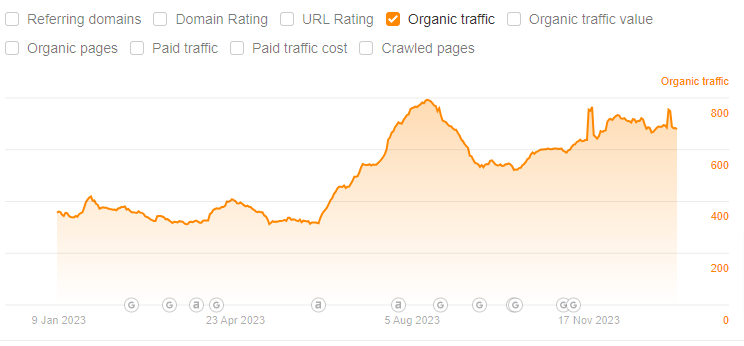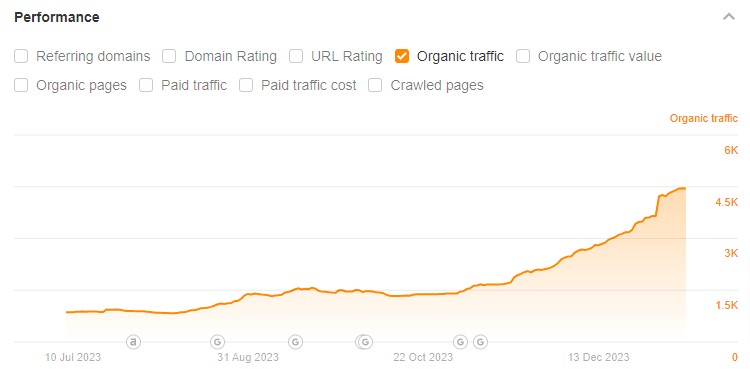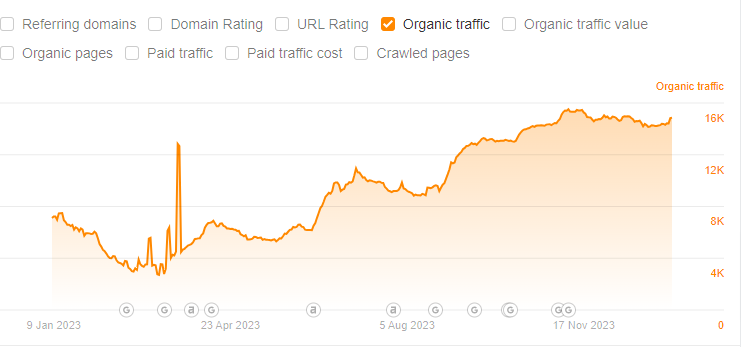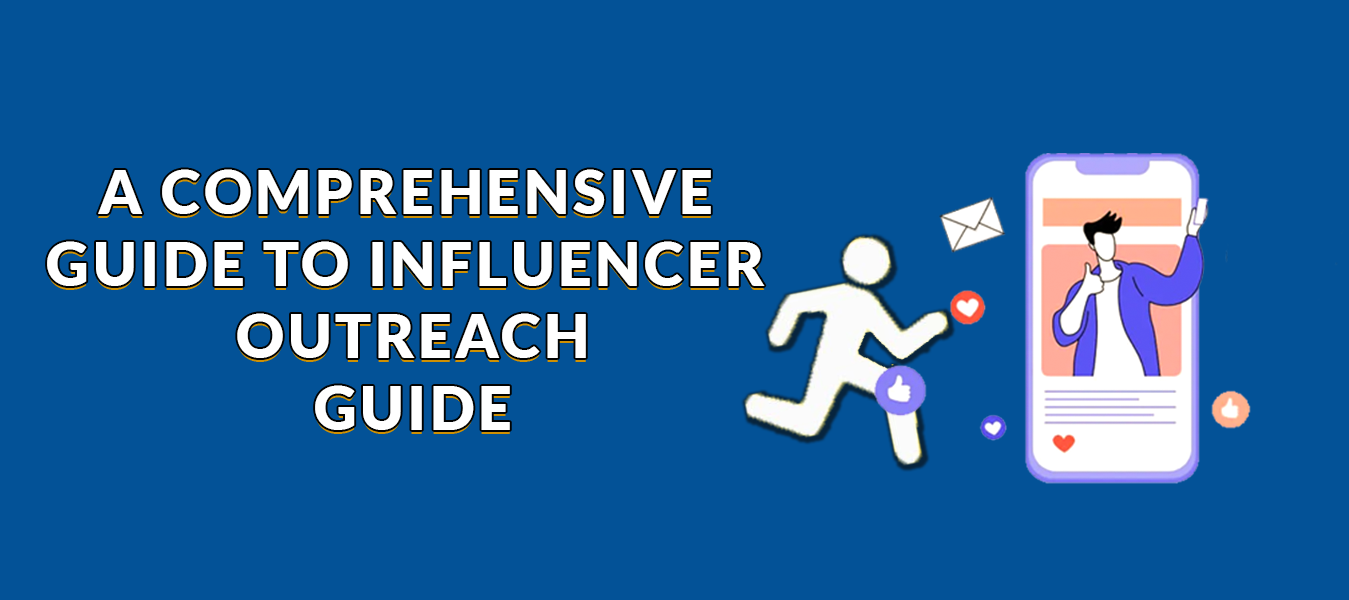In the intricate web of digital marketing, where visibility and credibility are paramount, mastering the art of link earning stands as a beacon of authenticity and authority. Link earning, the practice of naturally attracting backlinks through valuable and compelling content, represents a paradigm shift in the way online influence is cultivated. In an era where search engines prioritize quality over quantity, link earning emerges as a strategic cornerstone, shaping the digital landscape of businesses and individuals alike.
In this article, we will be embarking on a journey into the heart of link earning, exploring the nuanced techniques, the profound impact on search engine optimization, and the enduring relationships it forges within the vast expanse of the internet.
At its essence, link earning transcends the conventional realms of SEO tactics. It’s not about chasing after links; it’s about crafting narratives, developing resources, and curating experiences that naturally captivate audiences. Link earning is a testament to the power of genuine, valuable content – a digital currency that, when invested wisely, yields dividends in the form of organic endorsements from influencers, industry leaders, and discerning online communities.
Let’s delve into the intricacies of link earning as we unravel the secrets of creating content that not only resonates with hearts and minds but also magnetizes links, paving the way for a digital presence that is not just seen but genuinely celebrated.
Table of Contents:
|
Summary:
Unlike link building, link earning involves naturally attracting backlinks through valuable content. It focuses on creating high-quality, shareable content that captivates audiences, leading to organic endorsements. Along with multiple benefits, there are also some disadvantages related to this approach. These involve uncertainty of results, lack of control, and search engine algorithm changes. In short, this strategy can be very valuable for B2B companies seeking to increase their online presence, credibility, and authority.
What Is Link Earning?
Link earning, also known as earned links or natural links, refers to the process of obtaining backlinks to your website or content without actively pursuing or building them through manual efforts like outreach or link exchanges. Instead of directly asking other websites for links, link earning focuses on creating high-quality, valuable, and shareable content that naturally attracts links from other websites, blogs, or social media platforms.
When your content is valuable, informative, entertaining, or unique, other website owners and users are more likely to link to it naturally. This can happen because they found your content helpful, interesting, or relevant to their own audience. Search engines like Google value these natural, earned links because they are seen as genuine endorsements of your content’s quality and authority.
Earning links through high-quality content and positive user experiences is considered a more sustainable and ethical approach to link building, as opposed to black-hat techniques like buying links or engaging in link schemes, which can lead to penalties from search engines. In essence, link earning focuses on creating a strong online presence by producing valuable content that organically attracts links, contributing to improved search engine rankings and increased visibility on the web.
How Does Link Earning Work?
Link earning works on the principle of creating valuable, relevant, and shareable content that naturally attracts backlinks from other websites. The idea behind link earning is to foster a natural link profile for your website, where other webmasters, bloggers, and users voluntarily link to your content because they find it useful, informative, or entertaining.
The core concept is rooted in quality and authenticity. Search engines, especially Google, view backlinks as votes of confidence. When reputable websites link to your content, it signals to search engines that your content is credible and valuable. However, search engines are increasingly sophisticated and can differentiate between natural, earned links and manipulative, spammy links.
Here’s how the idea behind link earning works:
-
High-Quality Content (Value Creation)
You create content that provides value to your audience. This can be in the form of informative articles, in-depth guides, entertaining videos, useful tools, or any content that addresses specific needs or interests.
-
Shareability and Engagement (User Engagement)
Your content engages users. It’s informative, solves a problem, entertains, or inspires. Engaged users are more likely to share content they find valuable.
-
Social Signals and Natural Sharing (Social Media Sharing)
Users and influencers discover your content and share it on social media platforms. Social signals (mentions, likes, shares) indicate to others that your content is worth checking out.
-
Natural Backlinks (Online References)
Other website owners, bloggers, journalists, or researchers come across your content (often through social media or organic search) and find it valuable.
-
Credible Citations
They naturally link to your content as a credible citation, reference, or recommendation, enhancing the depth and value of their own content.
-
Search Engine Recognition (Search Engine Algorithms)
Search engines recognize these natural backlinks as genuine endorsements of your content’s quality. They consider these links when ranking pages in search results.
-
Improved Visibility and Authority (Higher Rankings)
With more high-quality backlinks pointing to your website, search engines tend to rank your site higher, improving its visibility in search results.
-
Enhanced Authority
Your website gains authority and trust, not just from users but also from search engines, making it more likely to rank well for relevant queries.
In essence, link earning is about creating a digital footprint that naturally attracts attention, engagement, and links. The focus is on creating a positive user experience, delivering value, and letting others organically amplify that value by linking to your content. It’s a long-term strategy that focuses on quality over quantity, building a sustainable online presence.
The 12 Best Link-Earning Techniques
In the ever-evolving landscape of digital marketing, link-earning strategies have emerged as the cornerstone of building a robust online presence. Unlike traditional link-building methods that rely on outreach and exchanges, link-earning strategies focus on the organic and authentic acquisition of backlinks.
At its core, link earning is about creating compelling, informative, and engaging content that naturally attracts links from reputable websites, blogs, and social media platforms. These strategies are grounded in the belief that high-quality content not only captivates audiences but also encourages others in the digital realm to voluntarily reference, share, and link to it.
In this dynamic arena, mastering the art of link earning is not just a tactic but a fundamental approach that empowers businesses and individuals to establish authority, foster credibility, and enhance their visibility online. This article delves into a myriad of effective and ethical link earning strategies, exploring the methods that transform ordinary content into magnetic digital assets, drawing in links, and solidifying a digital footprint that stands the test of time.
-
Create Exceptional Content
As mentioned earlier, creating valuable and shareable content is the foundation of link earning. Content can be in various forms, such as blog posts, infographics, videos, podcasts, or interactive tools. Make sure your content provides unique insights, solves problems, or entertains your audience.
-
Promote Your Content
Once you’ve created your content, promote it through various online channels, including social media, email newsletters, and relevant online communities.
The goal is to get your content in front of as many people as possible who might find it valuable.
-
Content Goes Viral or Gains Traction
If your content resonates with the audience, it has the potential to go viral or gain traction in your niche. Viral content often gets shared widely on social media, linked to blogs, and discussed on forums and other online platforms.
-
Guest Blogging
Contribute guest posts to reputable websites in your niche.
Guest blogging not only helps you showcase your expertise but also allows you to include a link back to your site, earning a high-quality backlink.
-
Collaborate with Influencers
Partner with influencers and industry experts in your niche. When influencers mention or link to your content, it can significantly boost your credibility and bring in more organic traffic.
-
Social Media Engagement
Actively engage on social media platforms. When your content is shared and discussed on social media, it can attract the attention of bloggers and website owners, leading to natural backlinks.
-
Original Research and Studies
Conduct original research or surveys in your industry and publish the results. Unique data and insights are highly shareable, especially among researchers, journalists, and bloggers, leading to natural backlinks.
-
Broken Link Building
Find broken links on other websites within your niche and reach out to the website owner, suggesting your content as a replacement.
This technique helps both you and the website owner by fixing their broken link and providing valuable content.
-
Build Relationships
Network with other website owners, bloggers, and influencers in your industry. Building genuine relationships can lead to natural mentions and backlinks when they find your content valuable.
-
Create Linkable Assets
Develop resources such as comprehensive guides, tutorials, or tools that are valuable to your audience.
These assets tend to attract natural backlinks as people reference them in their own content.
-
Monitor Brand Mentions
Use tools like Google Alerts to monitor mentions of your brand or website online. When you find unlinked mentions, politely reach out to the website owners and ask if they could link to your site.
-
Answer Questions on Q&A Websites
Participate in Q&A websites like Quora or relevant industry-specific forums. Provide helpful answers and include links to your relevant content when appropriate. If your answer is informative, people might share it on other platforms, earning you backlinks.
Remember, the key to successful link earning is to focus on providing value, building relationships, and being an active participant in your online community. By doing so, you’ll naturally attract backlinks from authoritative sources in your industry.
Are There Any Disadvantages of Link Earning?
While link earning is generally considered a reputable and sustainable way to build backlinks, there are potential challenges and disadvantages associated with this approach:
-
Time-Consuming
Earning natural backlinks through high-quality content and engagement takes time. It requires consistent effort to create valuable content, promote it, and wait for others to discover and link to it. For businesses in competitive markets, waiting for natural links to accumulate might not align with their immediate marketing goals.
-
Lack of Control
Unlike manual link-building techniques, you don’t have direct control over who links to your content when you’re earning links naturally. This lack of control can lead to slower link acquisition, especially if your content doesn’t naturally align with the interests of other websites in your niche.
-
Uncertain Results
The success of link-earning strategies can vary. Not all high-quality content gets the attention it deserves, and even exceptional content might not always attract the number of links you hope for. The results can be unpredictable, making it challenging to measure the effectiveness of your efforts accurately.
-
Competitive Niches
In highly competitive industries, getting noticed amidst the plethora of content can be difficult. It might require exceptional creativity, promotion, or networking to stand out and earn natural backlinks.
-
Potential Quality Variance
Not all natural backlinks are of equal quality. Some links might come from low-authority websites or irrelevant sources, which may not contribute significantly to your SEO efforts. Quality control is more challenging with natural backlinks compared to manual link-building methods.
-
Algorithm Changes
Search engine algorithms are constantly evolving. What works today might not work as effectively tomorrow. This uncertainty can impact the effectiveness of link-earning strategies, especially if search engines change how they evaluate and prioritize backlinks.
Despite these challenges, many SEO experts consider link earning a worthwhile strategy because of its long-term benefits and its alignment with search engines’ emphasis on high-quality, user-focused content. It’s essential to approach link earning with a realistic understanding of the time and effort it requires, as well as the potential variability in results.
Link Building vs Link Earning
In the intricate realm of digital marketing, the strategies employed to acquire backlinks are pivotal determinants of online success. Two prominent methodologies, link building and link earning, stand at the forefront of this dynamic landscape. Link building, characterized by proactive outreach and strategic negotiations, involves marketers actively seeking backlinks from external websites.
In stark contrast, link earning relies on the creation of high-quality, engaging content that naturally attracts endorsements and backlinks without direct solicitation. While both approaches aim to enhance a website’s online visibility and authority, the nuanced differences between them play a pivotal role in shaping the digital footprint of businesses and individuals alike.
Delving into the intricate details of these strategies unveils the diverse techniques, advantages, and challenges inherent in each, offering valuable insights for digital marketers navigating the complex terrain of online promotion.
-
Link Building
Let’s take a look at link building
-
Proactive Outreach and Negotiation
In the realm of link building, digital marketers engage in proactive outreach strategies. This involves meticulously identifying potential link sources, often through extensive research and analysis of websites with high domain authority and relevance to their industry. Subsequently, marketers initiate negotiations with these webmasters, employing persuasive communication skills to secure backlinks.
These negotiations can encompass various aspects, including the selection of appropriate anchor text, determining the ideal placement within the content, and establishing the contextual relevance of the link. The negotiation phase requires careful consideration of both parties’ interests, with marketers aiming to present their content in the most favorable light while ensuring the linking website sees mutual benefit in the collaboration.
-
Control Over Link Sources and Attributes
One of the key advantages of link building lies in the degree of control it affords marketers over their backlink portfolio. Through meticulous research and selection processes, marketers can specifically target websites that align with their niche, demographic, and content focus. This strategic approach ensures that backlinks are sourced from reputable and relevant websites, thereby enhancing the linking website’s authority.
Additionally, marketers can exercise control over anchor texts, optimizing them for specific keywords that align with their SEO goals. Fine-tuning these attributes allows for a tailored approach, ensuring that backlinks are not only relevant but also optimized for search engine algorithms.
-
Potential for Quicker Results Through Active Engagement
The proactive nature of link building often translates into a quicker acquisition of backlinks. Marketers initiate direct communication with potential link providers, thereby expediting the response time and negotiation process. Timely responses to outreach emails and efficient negotiation practices can lead to swift link placements. This rapid turnaround time is particularly advantageous for businesses aiming to bolster their online presence promptly, allowing them to enhance their search engine rankings and visibility within a shorter time frame.
-
Risk of Penalties and Algorithmic Changes
Despite its proactive approach, link building is not without its risks. Search engines, particularly Google, closely monitor link-building activities to ensure compliance with their guidelines. Engaging in manipulative tactics, such as buying links or participating in link schemes, can result in severe penalties, adversely affecting the website’s search engine rankings.
Additionally, search engine algorithms continually evolve, adapting to new trends and technologies. Consequently, strategies that were effective in the past might lose efficacy, necessitating constant adaptation, and awareness of algorithmic changes to maintain link-building effectiveness.
-
Ongoing Management and Follow-ups
Link building necessitates vigilant and ongoing management. Marketers must meticulously track the progress of their outreach campaigns, monitor responses, follow up with potential link providers, and assess the quality and relevance of acquired backlinks.
On top of that, continuous analysis of the backlink profile is imperative to ensure that the acquired links retain their relevance and authority. This ongoing effort ensures the sustained effectiveness of the link-building strategy, requiring meticulous attention to detail and proactive management practices.
-
Link Earning
Now, let’s see what link earning is all about
-
Passive Content Attraction and Natural Endorsement
Link earning operates on the premise of passive content attraction and natural endorsement. Instead of actively soliciting backlinks, marketers focus on creating exceptional, insightful, and shareable content that resonates with their target audience. This content serves as a magnet, naturally attracting attention from other websites, bloggers, social media users, and online communities.
These entities, upon discovering the valuable content, voluntarily endorse it by referencing it in their own articles, blog posts, or social media shares. This organic process reflects the genuine value that the content provides, leading to authentic endorsements and backlinks without any direct solicitation.
-
Organic and Unforced Backlink Accrual
The hallmark of link earning lies in its organic and unforced nature. Backlinks accrue naturally, driven solely by the merit of the content. When content is truly valuable, informative, or entertaining, other entities within the online sphere naturally gravitate toward it. This attraction occurs without any form of incentivization or active outreach.
Websites, bloggers, or social media users discover the content through organic searches, social media shares, or referrals and, recognizing its worth, voluntarily link to it. This natural linking process mirrors the content’s inherent quality and relevance, reflecting genuine endorsements from various online entities.
-
Long-term Strategy with Sustainable Results
Link earning operates as a long-term strategy, focusing on the creation of evergreen content that stands the test of time. Unlike short-lived trends or fads, evergreen content remains relevant and valuable over extended periods, continually attracting backlinks and endorsements.
Consequently, the backlinks acquired through link earning tend to be more enduring and sustainable, contributing to the website’s authority and visibility in the long run. This sustained effectiveness positions link earning as a cornerstone of a comprehensive digital marketing strategy, fostering enduring relationships with online communities and entities.
-
Enhanced Website Credibility and Authority
Backlinks earned through link earning often emanate from credible and authoritative sources within the industry. These sources recognize the content’s value and authenticity, leading them to endorse it through backlinks. Such endorsements serve as powerful validations of the website’s credibility and authority within its niche. Search engines, acknowledging these authentic endorsements, factor them into their algorithms, enhancing the website’s overall search engine ranking.
As a consequence, the website gains prominence as a reliable and trustworthy source of information within its field, fostering user trust and loyalty.
-
Alignment with Ethical SEO Practices
Link earning stands in alignment with the ethical principles of search engine optimization (SEO). It operates on the foundation of authenticity, delivering content that genuinely addresses users’ needs and interests. By focusing on content quality and user value, link earning adheres to search engine guidelines and best practices. It avoids manipulative tactics, ensuring that the acquired backlinks are genuine endorsements from entities that find the content intrinsically valuable. This adherence to ethical SEO practices enhances the website’s reputation, safeguarding it from potential penalties and algorithmic fluctuations. As a result, link earning not only elevates the website’s visibility but also fortifies its ethical standing within the digital landscape.
By meticulously analyzing the nuanced differences between link building and link earning, digital marketers can formulate informed strategies tailored to their specific objectives and industry dynamics. Whether pursuing a proactive approach rooted in targeted outreach or adopting a passive strategy grounded
How Can Link Earning Help B2B Companies?
Link earning can significantly benefit B2B (business-to-business) companies in several ways, contributing to their online presence, credibility, and overall marketing efforts:
Enhanced Authority and Credibility
B2B companies can establish themselves as authoritative voices within their industry by creating insightful and valuable content. When this content earns natural backlinks from reputable sources, it enhances the company’s credibility. Other businesses and professionals are more likely to trust and engage with a B2B company that is recognized and endorsed within its field.
Increased Trust and Relationships
B2B transactions often rely heavily on trust. When a B2B company’s content is cited and linked to by industry experts, it fosters trust among potential clients and partners. Genuine endorsements through backlinks indicate that the company’s expertise is recognized and respected, strengthening relationships in the business community.
Positive SEO Impact
Quality backlinks earned naturally are highly valued by search engines. When authoritative websites link to a B2B company’s content, it signals to search engines that the company is a credible source of information within its industry. This can lead to improved search engine rankings, making it easier for potential clients to find the company online.
Increased Referral Traffic
Earned backlinks not only improve SEO but also drive direct referral traffic. When a reputable website links to a B2B company’s content, its audience is more likely to click through to learn more. This targeted traffic consists of individuals and businesses interested in the company’s products or services, potentially leading to valuable conversions.
Content Validation
When industry influencers, bloggers, or authoritative websites link to a B2B company’s content, it validates the quality and relevance of the company’s offerings. This validation is especially crucial in B2B sectors, where businesses seek partners based on their expertise, thought leadership, and industry standing.
Networking Opportunities
Creating link-worthy content often involves engaging with industry experts and influencers. These interactions can lead to valuable networking opportunities. Building relationships with influencers can open doors to collaborations, partnerships, and even new client acquisitions, expanding the B2B company’s market reach.
Thought Leadership Establishment
B2B companies can position themselves as thought leaders within their industry through insightful content. When this content is shared and linked, it amplifies the company’s voice. Thought leadership status not only attracts more backlinks but also garners respect, drawing in clients who value expertise and innovation in their partners.
In summary, link earning for B2B companies is not just about improving SEO; it’s a strategic approach that builds trust, credibility, and relationships within the industry. By creating valuable content that naturally attracts backlinks, B2B companies can establish themselves as trusted authorities, drive targeted traffic, and lay the foundation for enduring business relationships.
Wrapping It Up
In conclusion, the journey through the realm of link earning illuminates a path toward digital prominence rooted in authenticity and expertise. As we navigate the ever-evolving algorithms of search engines, the significance of organic backlinks cannot be overstated. Link earning, far beyond a mere SEO strategy, is a testament to the enduring power of valuable content. It signifies a departure from the transactional nature of link building to a realm where content reigns supreme.
The relationships forged in the process, the mutual respect earned from industry peers, and the trust built with the audience serve as the true markers of success. By investing in the creation of meaningful, insightful, and shareable content, individuals and businesses can organically weave themselves into the fabric of the digital landscape, leaving an indelible mark that resonates across platforms and communities.
Embracing the principles of link earning empowers us to not only enhance our online visibility but to redefine our digital narratives. It is a call to content creators, marketers, and businesses to shift their focus from algorithms to authenticity, from backlinks to genuine connections. In the realm of link earning, quality triumphs over quantity, and influence is earned through the merit of ideas.
As we move forward, let us continue to craft content that inspires, educates, and delights, knowing that in the world of link earning, each authentic story, every insightful article, and every engaging video has the potential to ripple through the digital sphere, leaving a lasting legacy of credibility, trust, and influence.
Frequently Asked Questions About Link Earning
Question 1: What’s the difference between link building and link earning?
Link building involves proactive outreach and negotiation for backlinks, while link earning relies on creating quality content that naturally attracts endorsements and backlinks without direct outreach or active pursuance.
Question 2: What are some effective link earning techniques?
Effective link earning techniques include creating exceptional content, promoting content through various channels, guest blogging, collaborating with influencers, and more.
Question 3: What are the benefits of link earning for B2B companies?
Link earning can enhance authority, credibility, and trust for B2B companies. It leads to positive SEO impact, increased referral traffic, and validation of content quality. It also creates networking opportunities and establishes you as a thought leader in your industry.
Question 4: Are there any disadvantages to link earning?
Yes, link earning can be time-consuming, and results may not always be predictable. In competitive niches, standing out can be challenging, and not all acquired backlinks may be of equal quality.
Question 5: How does link earning contribute to SEO?
Link earning contributes to SEO by providing high-quality and natural backlinks. Search engines value these links as genuine endorsements of content quality and authority, which can lead to improved search engine rankings and website authority.


